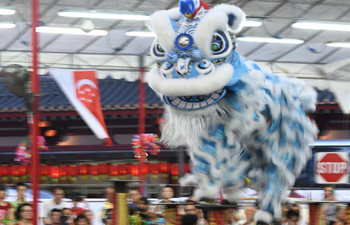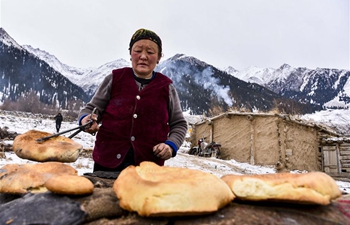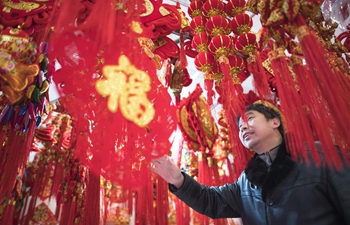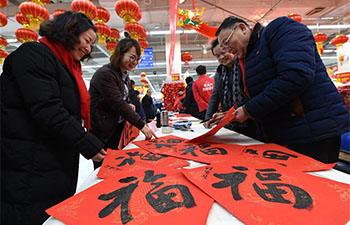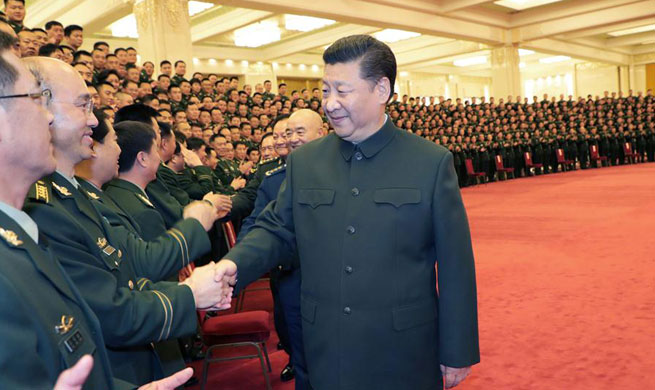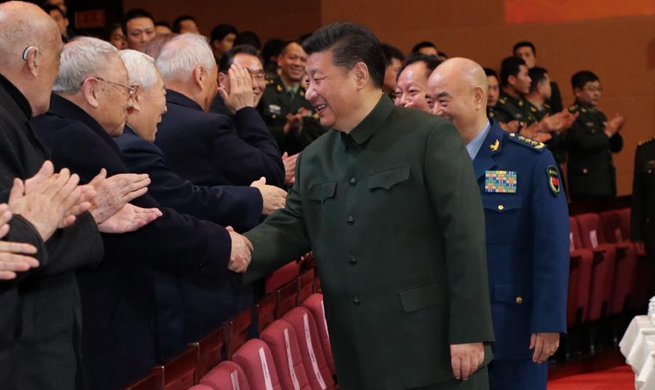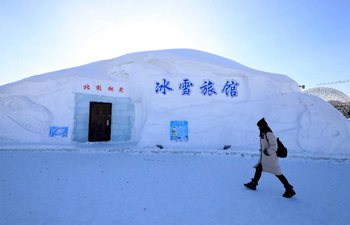BUENOS AIRES, Feb. 3 (Xinhua) -- U.S. criticism of Latin America's growing ties with China is unfounded since the bilateral relationship is based on mutual interest and cooperation, Argentine political analyst Paola de Simone has said.
Prior to embarking on a trip to five nations in Latin America and the Caribbean -- including Argentina -- U.S. Secretary of State Rex Tillerson accused China on Thursday of "using economic statecraft to pull the region into its orbit."
The U.S. envoy suggested that China is applying undue pressure, remarks which Simone said were unfounded.
"Proof of that is that increasingly more countries in the region are strengthening their ties with Beijing and bolstering their own development," she told Xinhua in a recent interview.
The expert, who specializes in international law, said Latin America's ties with China have been diversifying, and are not merely financial and economic in nature.
"Ties with China are expanding in diverse fields, such as trade, culture and economy. Recently, our country (Argentina) succeeded in opening up the Chinese market for beef and lamb. They join wine and other goods that are cropping up in Chinese baskets," she said.
In contrast, U.S. protectionism is making it harder for Latin American countries to export their products to the United States, the analyst said.
Argentina, for example, is currently in a lawsuit against the United States over Argentine-produced biodiesel as Washington decided in December to keep the anti-dumping duties effective for another five years. Simone said the tariffs are too high for producers in her country to export their products to the U.S. market.
Tillerson's tour includes stops in Mexico, Argentina, Peru, Colombia and Jamaica. On Monday he will meet with Argentine President Mauricio Macri.
Until this trip, the expert said, the administration of U.S. President Donald Trump has by and large ignored Latin America, except for making complaints about cross-border migration from Mexico or slapping the socialist governments of Cuba and Venezuela.
"The United States' objection to China's ties with Latin America is due to the fact that since Trump's arrival, it abandoned the region, an area it used to consider its backyard," she said.
"Given this lack of attention, the Southern Cone (southernmost areas of South America) looked to Europe and China, whose global initiatives, such as the Belt and Road, can lead to development," she added, referring to the Belt and Road Initiative proposed by China to achieve common development by boosting infrastructure construction and interconnectivity, among others.
With China's help, "our country has been able to modernize its cargo and passenger rail system with Chinese trains," Simone said.
Following two years of contraction in 2015 and 2016, trade volume between China and Latin America and the Caribbean amounted to 247.4 billion U.S. dollars in the first 11 months of 2017, up 22.2 percent year-on-year.
"Ties benefit both sides, which turned out to complement one another with what each provides, from raw materials and agroindustry to investment and technology for infrastructure," said Simone.




